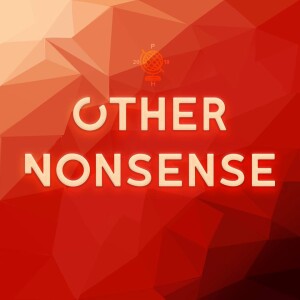Episodes

Monday Mar 09, 2020
When Ronnie Met Mikie: The Friendship of Mikhail Gorbachev and Ronald Reagan
Monday Mar 09, 2020
Monday Mar 09, 2020
One was a man born in Russia during the height of Stalinism, who rose to power through hard work and perseverance.
The other was a man, a proud American with great charisma, and once acted alongside a chimpanzee.
Both men were leader of their respective countries, long rivals who on more than one occasion nearly brought about nuclear war. There was little in common between these two men that could possibly bring them together.
Or was there?
Soviet Premier Mikhail Gorbachev and American President Ronald Reagan first met at a summit in Geneva in 1985. It was at this first meeting the two would develop a friendship and mutual respect for one another which – through close calls, stalemate, and disagreement – bring about the thawing of relations between their respective countries, and bring about the end of the Cold War only two years later.

Tuesday Feb 18, 2020
The Bear Trap: The Soviet-Afghan War
Tuesday Feb 18, 2020
Tuesday Feb 18, 2020
Afghanistan is a country no empire could successfully invade. Even the British Empire, the largest Earth has ever seen, couldn't bring it fully into its fold despite three attempts. Despite its position sandwiched between British India and the Russian Empire (later Soviet Union), Afghanistan remained isolated, even well into the 20th century. Albeit an ethnically diverse, the Afghan people were united under their shared Islamic faith, and desire to form their own national identity, free from interference, and free from colonial chains.
Fate hasn't been kind to Afghanistan, and following a violent coup, found itself a communist state under the watchful eye of the Soviet Union. The people, once again bonded by their national identity, banded together to oppose the ruthless regime and reclaim their sovereignty. On the request of the Afghan government, Soviet troops poured into the country to quell the unrest. Little did they know they stepped right into the bear trap, creating a quagmire Afghanistan continues to suffer the aftershocks of today. Furthermore, from the conflict would arise people who would go on to commit great atrocities. This includes a man who would order an attack which engulfed Manhattan in ash.
Music
Ay Jan / Alap Robab / Srang Srang Srang (Traditional Afghan Music), Anello Capuano and Bruno Assenmacher
Hill 3234, Sabaton

Monday Jan 27, 2020
Red Steppes: The Mongolian People's Republic
Monday Jan 27, 2020
Monday Jan 27, 2020
Mongolia once held the largest contiguous empire in world history, and was the second largest empire overall (behind the British Empire). It was the home of the great warrior Genghis Khan, who was instrumental in creating the Mongol Empire, and constructing the Silk Road. However, the empire fell into disarray, splintering into smaller states. From there, Mongolia became a part of the Chinese Qing Dynasty. Throughout the beginning of the 20th Century, Mongolia worked to reform its independence.
First, it became a Theocratic state under a Buddhist spiritual leader. However, the international community failed to recognize its independence, with the exception of Tibet. After several instances of turmoil, war, and suppression, a group of men inspired by the successful Bolshevik Revolution put in motion their plans to create the Mongolian People's Republic, the second communist state ever to exist.
We at Pan Historia would like to apologize in advance to the people of Mongolia for butchering the pronunciation of your names. In particular, Jonah wishes to offer sincere apologies to Tsakhiagiin Elbegdorj for multiple mispronunciations. We love you, Mongolia.
Music:
Môngôl Ûlsiin toriin dûûlal, Mongolian National Anthem
Outro: Chingges Khaanii Magtaal (In Praise of Genghis Khan)

Wednesday Jan 15, 2020
Taboo Topics, Awkward Ancestry, and Other Nonsense
Wednesday Jan 15, 2020
Wednesday Jan 15, 2020
After a nice holiday break, and some extra time to recover from their colds, Lyndsay and Jonah are back at it to kick of the second half of season 3. With temperatures dropping to an ungodly low, the pair keep warm by discussing the ripples caused by 9/11, Jonah reveals an awkward discovery in his family photo albums, and other nonsense.
Please consider making a donation to help the families of the victims on Ukraine International Airlines Flight 752. Link below. Pan Historia, and Other Nonsense offers their sincere condolences to the friends and family of those who lost their lives.

Monday Dec 23, 2019
Deșteaptă-te, române!: The Romanian Revolution
Monday Dec 23, 2019
Monday Dec 23, 2019
An aging dictator stood on a balcony overlooking Palace Square in Bucharest. 100,000 people stood before him, staring with blank faces. The dictator began is usual list of supposed achievements of his regime. However, the people watching him were starving, overworked, and suffered a year of having their electricity frequently turned off during the cold winters. Furthermore, all knew a rebellion had set the nearby city of Timișoara ablaze. As the dictators words dragged on, the patience of the crowd became more and more thin.
Soon, a lone person began repeating "Timi-șoa-ra, Timi-șoa-ra, Timi-șoa-ra…" The chant spread to the others in attendance, and became so loud, nobody could hear the dictator. He raised his hand in an attempt to silence them, too ignorant and arrogant to realize his people had enough. He stood in stunned silence before he was whisked away by his bodyguards. For the first time, the people of Romania had witnessed the weakness of their leader, Nicolae Ceaușescu, for the first time in his nearly 25 year reign. Four days later, he would be dead.
The Romanian Revolution was the last of the Eastern Bloc to overthrow its communist regime. Afterwords, the USSR would stand alone as its own system began to crumble.
Music
Deșteaptă-te, române!, Romanian National Anthem
Summit, Jonny Easton

Monday Dec 09, 2019
Solidarity: The Polish Workers Strikes
Monday Dec 09, 2019
Monday Dec 09, 2019
Before the Wall came down, before the days of Glasnost and Perestroika, the people of Poland began a series of defiant acts against their communist government. The Polish people suffered heavily during the Second World War under the brutal occupation of both the Nazis and Soviets. Following the end, the state remained a puppet of the Soviet Union. As the 1980s came around, the economy of Eastern Europe had stagnated due to Premier Brezhnev's limits on trade, production, and workers pay on its satellites. Things came to a head in Poland when it was decided an increase of prices was necessary, albeit while keeping salaries the same.
In the appropriately named Lenin Shipyard of Gdansk, the stevedores banded together to demand concessions from the government to improve working conditions in Poland, and bring the country closer to democracy. It was here the Solidarity movement began, the downfall of Poland's communist government commenced, and the ripples spread across Eastern Europe originated, which in turn would bring an end to the Warsaw Pact, and the Cold War itself.

Monday Nov 25, 2019
"You Can't Stop the Spring": The Velvet Revolution
Monday Nov 25, 2019
Monday Nov 25, 2019
"They may crush the flowers, but they can't stop the spring."
-Alexander Dubcek, 1968
Hundreds of thousands of citizens gathered in the streets of Prague, Czechoslovakia, as the country's politburo finally decided there was nothing more they could do. Having witnessed change in Poland, East Germany, and Hungary already come to pass, they knew it was only a matter of time before they were next. In one swift action, the entire politburo resigned, deciding to rip the band aid off quickly, and without further harm. Across town, members of the opposition Civic Forum were in the midst of a press conference when news of the resignations reached them. The room erupted into cheers and applause, and one man even opened champaign in celebration
Alexander Dubcek, former General Secretary of Czechoslovakia, had tried 20 years prior to bring reform to the country. His efforts were crushed beneath the tracks of Soviet tanks, and he was allowed to retire back into obscurity. Now, on that late November evening, the people were once again chanting his name. As he stepped onto a balcony, he was overcome with emotion and unable to speak. Improvising and a massive smile on his face, Dubcek walked to the balcony rails and curled his arms slowly towards the crowd, effectively embracing the them. The Czech and Slovak people were all entwined in an embrace that night. Without a shot being fired, or a molotov flying, Czechoslovakia had become free.
Music:
Nad Tatrou sa blyska (Lightning Over the Tatras), Slovanian National Anthem
Kde domov muj(Where My Home Is), Czech National Anthem

Saturday Nov 09, 2019
Edifice of Fear: The Rise and Fall of the Berlin Wall
Saturday Nov 09, 2019
Saturday Nov 09, 2019
The Iron Curtain across Europe Winston Churchill described was metaphorical rather than physical, at least at the time he made his famous speech. The divide between East and West had become an ideological conflict, Capitalism versus Communism. The defeated Germany was occupied by the Allies of the United States, United Kingdom, France, and the Soviet Union. Furthermore, Germany was organized into two states, the Federal Republic of Germany in the west, and the German Democratic Republic in the east. Along with this, Berlin found itself two separate entities.
Millions of people fled west to avoid falling under the brutal suppression the Soviets had become known for. This resulted in nearly 20% of the GDR's population falling, which included a large number of the country's intellectual population. It was soon clear to the politburo this could not continued. Seemingly overnight in August 1961, the Berlin Wall was erected. With it, the Iron Curtain had a physical representation.
Intro:
Sinews of Peace, Winston Churchill

Wednesday Oct 09, 2019
Hong Kong, Ceremonies, and Other Nonsense
Wednesday Oct 09, 2019
Wednesday Oct 09, 2019
We're back!!! Season three begins with a conversation on watershed moments (mostly the Hong Kong Protests), religious ceremonies, and other nonsense.
Music:
From Russia with Love by Huma Huma
Soviet National Anthem

Friday Sep 06, 2019
Pride, Museums, and Other Nonsense
Friday Sep 06, 2019
Friday Sep 06, 2019
Another season has come and gone. In this episode, Lyndsay and Jonah unwind after a day at Calgary Pride by talking about the events of that day, museums they have visited, and other nonsense.

